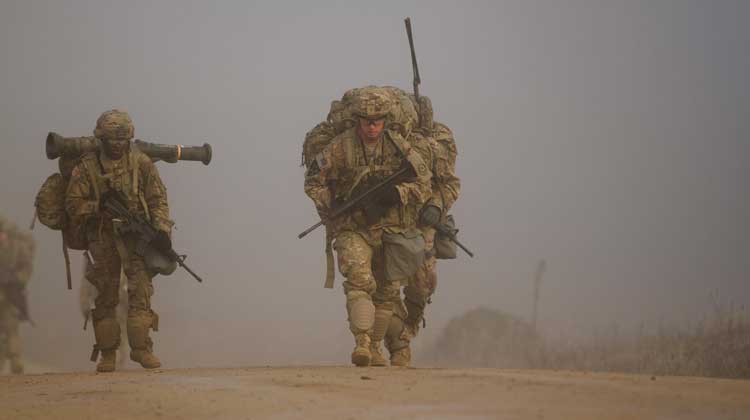
Of the 34 million youth aged 17 to 24 in the United States, only 29 percent could actually serve, according to a report from The Heritage Foundation. As the military relies on volunteers to fill ranks each year, it’s a crisis authors Thomas Spoehr and Bridget Handy say is not in the future; it’s here now.
“More and more young Americans do not qualify to enter the military due to lack of basic education, drug use, criminal background, or—the top reason—simply being too fat,” according to The Looming National Security Crisis: Young Americans Unable to Serve in the Military.
However, an individual could fall into more than a single category. Though the Army has the biggest problem, the report said it affects all services.
Most alarming, according to the report, is the instance of obesity, and the trend is increasing. A former recruiting commander estimates obesity rates at 50 percent by 2020, meaning only two out of 10 would qualify to join.
“[O]f the total number of those who attempt to joint the Armed Forces, approximately 15,000 are rejected every year because they are overweight,” the report stated. Other health contributors to ineligibility “include asthma, hearing and eyesight problems, and mental illness.”
In education, recruits must have graduated high school or earned General Equivalency Diploma (GED), but the combination of lower graduation standards and abysmal graduation rates renders a number of recruits ineligible.
“For those who do not complete high school, the military accepts a certain number of recruits who have received their GED, but these individuals rarely pass the Armed Forces Qualification Test (AFQT),” the report stated, noting the AFQT measures skills such as math and reading. “Young Americans’ inability to meet education qualifications highlights underlying issues in America’s educational foundations, with national consequences.”
Criminal activity prevents about 10 percent of recruits from joining as well.
“Disqualifying crimes are various and include felonies or serious misdemeanors,” it said. “Additionally, the military has low tolerance for recruits demonstrating consistent use of illegal or recreational drugs or contributing to their distribution.”
Among the recommendations in the report, increasing public awareness, tapping the knowledge of role models, increasing school choice options, and supporting programs such as scouting and ROTC programs top the list.
“Greater numbers of Americans could be available if the military lowered its standards,” the report said, “but this would also arguably put the nation’s defense at risk since the caliber among service members would be reduced, harming a qualitative factor that has always represented a competitive advantage of the U.S. military.”
Read the entire report here.
© 2018 Homeland411
Click here to subscribe to the Homeland411 weekly newsletter.